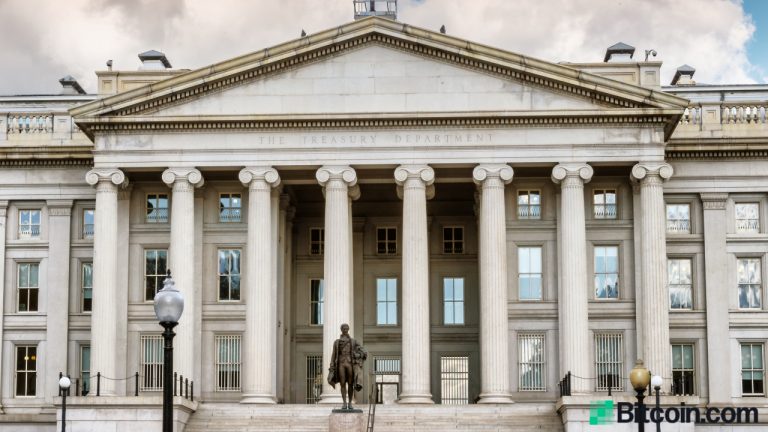
The New Civil Liberties Alliance has objected to FinCEN’s proposed crypto wallet rule, calling it “unlawful.” In addition, the group says that the U.S. Treasury’s “planned ‘crackdown’ on cryptocurrency holders’ private wallets is an unconstitutional power grab.”
FinCEN’s Proposed Crypto Wallet Rule Is Unlawful, Says NCLA
The New Civil Liberties Alliance (NCLA), a nonpartisan, nonprofit civil rights group, filed its comments on Monday objecting to FinCEN’s proposed rule, entitled “Requirements for Certain Transactions Involving Convertible Virtual Currency or Digital Assets.” The Financial Crimes Enforcement Network (FinCEN) is a bureau of the U.S. Treasury Department.
The NCLA warned:
The U.S. Treasury Department’s planned ‘crackdown’ on cryptocurrency holders’ private wallets is an unconstitutional power grab … The proposed rule represents a radical — and unlawful — extension of FinCEN’s financial surveillance.
The group calls FinCEN’s proposal a “large-scale state intrusion into private digital transactions,” asserting that its “unlawful requirements … would lead to a massive collection of people’s personal information” and would “likely force privacy-sensitive digital assets out of the U.S. banking system.”
Under the proposal, “digital assets would fall into the ‘monetary instruments’ category of regulated currencies,” the NCLA explained. This means private data of bitcoin and other crypto users would be collected as mandated by the Bank Secrecy Act’s (BSA) record-keeping and currency transaction reporting requirements.
Furthermore, FinCEN’s proposed rule “sets in motion a chain reaction of personal information mandatory disclosure,” the NCLA described. For example, whenever a financial institution makes a transaction involving cryptocurrencies worth more than $3,000 with a person, even if the individual is using an unhosted wallet, it must keep detailed records concerning both the customer and the counterparty. The NCLA pointed out that “Even existing BSA requirements for traditional banks do not require this level of disclosure about counterparties.” The alliance argues:
The proposed rule exceeds appropriate constitutional limits by empowering FinCEN to exercise Congress’ exclusive legislative power.
The group further explained that “the proposed rule violates the Fourth Amendment by extending the BSA’s reach to require production of sensitive financial information from those who have never voluntarily disclosed it to a financial institution, and who, like cryptocurrency owners, have been excluded from the BSA’s reach.” The NCLA emphasized that “It would unconstitutionally require disclosure of private information to law enforcement without any suspicion of wrongdoing,” subsequently urging FinCEN to “recognize constitutional limits on its authority and to halt its unlawful rulemaking.”
Caleb Kruckenberg, NCLA’s litigation counsel, commented:
FinCEN’s proposed rule unlawfully attempts to transform the agency’s limited authority to regulate banks into permission to engage in the mass financial surveillance of innocent individuals who merely use digital assets. FinCEN ought to recognize that its proposal would be grossly unconstitutional and promptly scrap this rule.
Do you agree with the NCLA on FinCEN’s crypto rule? Let us know in the comments section below.
source https://news.bitcoin.com/us-treasury-fincen-cryptocurrency-wallet-rule-unconstitutional/
Komentar
Posting Komentar